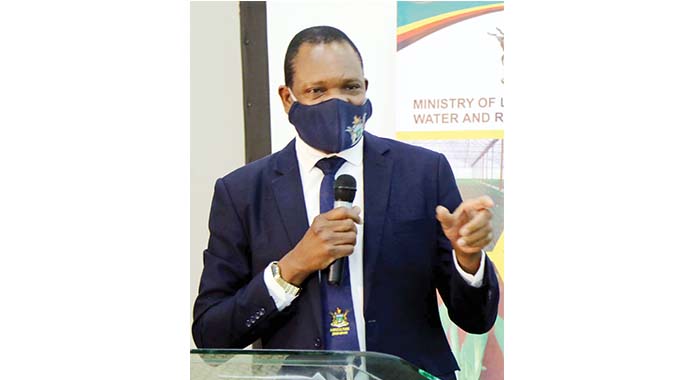Mechanising Pfumvudza/Intwasa the way to go

Farmers are busy harvesting in what will be the country’s most bountiful season in 20 years.
Thanks to a favourable rainy season and enough preparations, the maize harvest is expected to be at 2,7 million tonnes, according to a recent Government report.
Traditional grains production is expected to be 347 968 tonnes, an increase of 128 percent compared to the 152 515 tonnes produced in the 2019/2020 season.
Sorghum will contribute 244 063 tonnes while finger millet production will be 13 223 tonnes, an increase of 35 percent from the 9 799 tonnes produced during last summer’s cropping season. About 90 600 tonnes of pearl millet, another traditional grain, will be reaped.
Groundnut and sunflower output will be 208 864 tonnes and 14 198 tonnes respectively. Tobacco production is expected to be 200 million kilogrammes, up from 184 million last season.
For the food crops, the big harvest was achieved because of a number of Government-led initiatives with the Climate Proofed Presidential Inputs Scheme, commonly known as the Pfumvudza/Intwasa Programme being the key.
Around 2,2 million, more than the targeted 1,8 million farmers, received free inputs — maize, beans, sunflower, traditional grains, fertiliser and training — to work intensively on three small portions of their land measuring 16 by 39 metres each.
It is gratifying that due to the impressive harvest, largely made possible by the Pfumvudza/Intwasa Programme, household and national food security for this year has been guaranteed. This encouraged the Government to ban grain imports two weeks ago.
Under Pfumvudza/Intwasa, farmers work untilled pieces of land, making holes to a prescribed depth and spacing before they mulch and plant. Instead of spreading their efforts thinly across large pieces of land with little gain in the end, farmers concentrate on the small portions.
The result of this farming concept is this year’s harvest, so massive that the Grain Marketing Board has a challenge in creating space to store it. A positive challenge indeed.
As the highly successful 2020/2021 summer farming season is being wrapped up, preparations for the next season have already started.
The Pfumvudza/Intwasa Programme is being expanded this year by the incorporation of mechanisation.
“There is need to mechanise conservation agriculture [Pfumvudza/Intwasa] to sustain its adoption and help improve productivity in smallholder agriculture,” Minister Anxious Masuka said recently.
“There is a need to upscale and increase support for climate-proofing technologies such as Pfumvudza/Intwasa by water harvesting, irrigation rehabilitation and development to climate proof agriculture and sustain the production and productivity gains among the smallholder farming sector in future seasons.”
Yesterday, Permanent Secretary in the Ministry of Lands, Agriculture, Fisheries, Water and Rural Resettlement officiated at an open day at Domboshawa, Mashonaland East Province, where mechanising Pfumvudza/Intwasa and the training of trainers were the focus.
Many machines were on display, including some that are targeted at smallholder farmers who constitute the 2,2 million who took part in the Pfumvudza/Intwasa initiative during the 2020/2021 season.
Mechanising the concept, which tends to be physically demanding, will be good in enhancing the efficiency of farmers. This should drive productivity too. Traditionally, the maize harvest per hectare in the smallholder sector averaged a tonne or two per hectare, but as Mashonaland Central Provincial Agritex officer, Mr Stancilae Tapererwa, told us on Thursday, the yield this past season was about 5,28 t/ha.
That is huge looking at the traditional average harvest. We can only hope that when mechanised, Pfumvudza/Intwasa will further boost its uptake, productivity, the national harvest and food security.
Having performed so well in the inaugural season, farmers nationwide reasonably expect to receive the inputs early as they did last year so that they prepare. They also hope that the new machines would be made available now to ease the hard labour commonly associated with conservation agriculture which is the basis of Pfumvudza/Intwasa.
With all inputs in stock and land prepared, they will look to God to pour down the rains so that the country harvests big again.
But even if the season is not as wet as the one just behind us, the conservation agriculture principles that anchor Pfumvudza/Intwasa should enable farmers to realise substantial harvests.










Comments